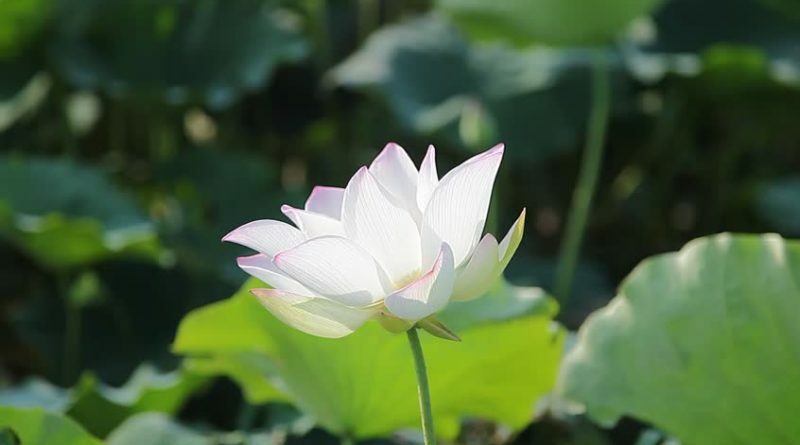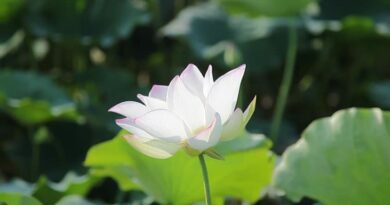RAPTURE
Rapture
Take a few deep, long in-and-out breaths and think of the breath energy filling the body. When we talk of the breath energy being full, it’s not a matter of having your lungs stuffed with air. It’s more that the energy channels throughout the body are open and they feel saturated with comfortable energy. So try to notice where in the body you have that sense of fullness right now. Protect that spot as you breathe in; protect it as you breathe out. Don’t squeeze it. Don’t pull it. Think of it floating in mid-air right there. Some people feel this sense of potential fullness most easily in their hands. Other people feel it most easily in the chest. It really varies from person to person where you’re going to feel it first.
Once you notice that there’s an area that does feel relatively full of nice energy, think of it spreading out from that spot. This is something you can’t push or pull. You allow it to spread at its own rate. Tell yourself that you’re in no hurry. You don’t have to anticipate how soon it’s going to happen or how long it’s going to take. It’s something that happens right on the cusp of the present moment. So if you’re leaning too much into the future, you’re not going to see it. If you’re leaning back into the past, you’re not going to see it. Try to think of yourself being balanced right here. The image the Buddha gives is of a mustard seed on the tip of an awl, like an extremely sharp nail.
Now, developing this sense of fullness, this sense of well-being, requires that you pay very careful attention to the breath and that you be very meticulous in how you evaluate the breath. How is it feeling right now? When you breathe in, does the breath energy spread smoothly or does it feel like you’re pushing or pulling it too much? What we’re working on here is something called piti in Pali. You can translate it as rapture; you can translate it as fullness; you can translate it as refreshment. The basic meaning is that it feels really good, really nourishing. The Buddha lists it as one of the energizing factors for awakening.
It’s also a kind of food. There’s that passage where he says that when we meditate, we feed on rapture like the radiant gods. The problem with the word rapture is that sometimes it seems too intense for the way some people experience it. Some people feel it as a tingling through the body, their hair standing on end. For others, it’s gentler—a sense of balanced, full well-being. Some people feel it in waves coming over the body. And for some people it’s so intense that the body starts moving.
The intensity is not a measure of the intensity of your concentration. It’s more a measure of how starved of energy the body’s been feeling. If it’s been feeling really starved, the sense of rapture will be extremely intense. If the body hasn’t been starved, the rapture or refreshment will be gentler. It’s like drinking a glass of water: The sense of refreshment will be a lot stronger if you’ve just come in from three days in the desert, and a lot weaker if you’ve been resting in a cool, damp place. The amount of water will be the same, but the felt intensity will be different.
Sometimes you may want the rapture to be intense yet it’s not going to be intense, but that doesn’t matter. Be very patient with it. Again, if you start pushing it too much, it withers up. Have a strong sense of allowing the energy to be there and to radiate out. If it’s going to spread, it’ll spread at its own rate. You just try to maintain your balance right there on the cusp of the present, keeping the energy channels open, and it’ll do its own thing.
This is a really necessary part of meditation. Ajaan Fuang used to say that your mind is like a machine that needs lubricant. Otherwise, it’s going to dry up. Your practice gets dry if there’s no sense of real refreshment and well-being. That’s what rapture is: lubricant for your meditation. He talked about being alone up in the forest for years in Northern Thailand, missing Ajaan Lee. And what kept him going through the day, each day, was his ability to tap into a sense of rapture whenever he needed it.
Realize that rapture is waiting here for you in the present moment. Just look very carefully and give it some space. In the beginning, it might not seem like much, but you’ve got to give it a chance. It’s like that old fable of the mouse and the lion. The lion catches the mouse, but the mouse promises the lion that if he lets him go, maybe someday he’ll save the lion’s life. The lion is so amused at the mouse’s presumption that he lets the mouse go. After a while, though, the lion is caught in a net, and the mouse comes and eats away at the net, freeing the lion.
So don’t disparage little things, don’t disparage weak things—because they can grow. They can get stronger. Wherever in the body there’s a feeling of “okay,” allow it to stay okay. Protect it. Ajaan Fuang would use the word prakhong, which means to hover around something to keep it from being damaged—as when you hover around a child who’s learning to walk. Try to develop that same attitude of hovering around these sensations in the body. Don’t push them or squeeze them too much. Give them their space. Just protect them so that nothing comes in and steps on them.
As for any questions the mind may have about how long this is going to take or how much longer we’re going to be sitting here, just drop them, drop them, drop them. Let them fall away. Try to find a sense of balance right here, because right here is where all the good things happen—and where all the important things happen as well. If you can nourish and protect this sense of fullness, then you begin to notice any movements of the mind that might disturb it. You see where the mind is hungry and how it often goes out looking for what’s basically junk food to assuage its hunger. Now, however, you realize you don’t have to do that, for you’ve got something really nice and nourishing right here. Why go out looking for trouble?
Greed, aversion, and delusion are all looking for trouble. They’re like strong attacks of hunger and they’re never really satisfied. When you act on these things, they may provide a little bit of fullness and a little bit of energy, but then it goes. It’s like food that’s bad for your health. But here’s something that you’ve been carrying around with you all the time: the potentials in the body. Ajaan Lee talks about this a lot—that the body has all kinds of potentials that we rarely take advantage of because we don’t let the mind get quiet enough for them to show themselves. So give this potential—this potential for fullness, a sense of refreshment—some space. Give it some time. You’ll find that it really can strengthen your practice and give you a source of energy that you can tap into whenever you need it at any time throughout the day. Whether you’re in formal meditation or not, these potentials are always there. When you can recognize them and learn how to allow them to grow, you’ll have a constant source of food, a constant source of energy that you can take with you wherever you go.



